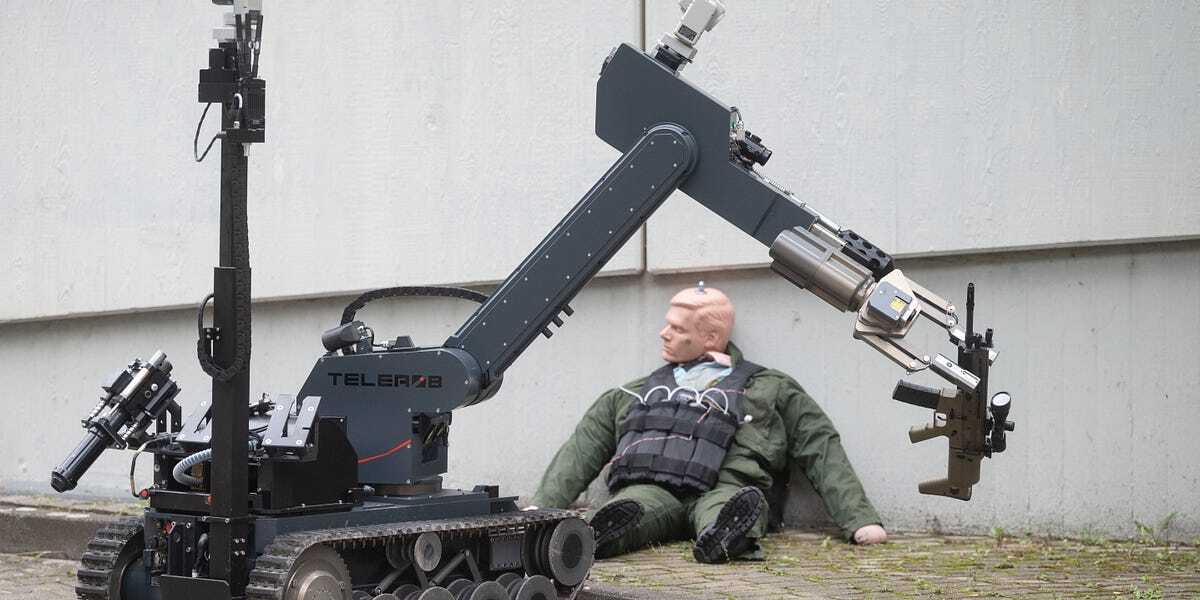Alfred Nobel claimed to be surprised that his invention of dynamite contributed to war, not peace. Had to establish that Peace Prize to try to even the scales for all the dead bodies. This is as good a lesson as any for well-meaning tech industry people who possess a genuine belief that we can innovate our way out of social and political problems. We can’t. That’s because technology, while an extraordinarily powerful tool, does not by itself change the way that power is distributed in society. If the hand that holds the dynamite wants to use it to clear away rocks, you get great new roads. If the hand that holds the dynamite wants to use it to make bombs to drop on neighbors, you get mass death. If you say, “We’ll only give dynamite to peace-loving people,” the stronger, war-loving people will come and take it away. If you don’t change the overall power arrangement, new technology will just make strong people stronger. So too with today’s technologies. Except worse.
Consider the internet—the most transformative technology of my lifetime, so far. Tom Friedman and all of the other techno-utopians told me that the widespread availability of cheap high speed internet and smartphones would enable the cab driver in Djibouti to become an online entrepreneur just as easily as someone in Silicon Valley, and a new wave of equal opportunity would revolutionize the future of the world. Is that what happened? I don’t mean in an anecdotal sense, Is that the big socioeconomic story of the internet? No. The big socioeconomic story of the internet, despite all of the ways that it has changed our culture and entertainment and communication and Ways We Summon a Car, is that it has produced the biggest individual fortunes that the modern world has seen. It has, by any reasonable measure, increase inequality. It has consolidated more power in a smaller number of hands. Yeah, the Arab Spring was planned on Facebook. It failed. So were some genocides. They succeeded. In the past you had to buy a printing press to spread your words. Now you can publish things globally for free. Despite that fact, information control has become so centralized on a small number of platforms that the world’s richest man saw fit to spend $44 billion to buy a social media platform, and used it to help elect a fascist. All the guys who control the biggest tech companies, the ones that we were told would unleash a new World That Is Flat that would allow anyone anywhere to use these amazing new free or low-cost tools to compete with the well-funded big boys, ended up sitting behind the fascist on stage when he took the oath of office. Hey, whoa! Where did the internet age’s beautiful dream go off the rails?
The answer, of course, is that the belief that a radical new technology would produce a radical new world was always naive. Technology is not politics. It cannot solve political problems. It can, however, exacerbate political problems. The power of new technologies, controlled by the strong, makes them stronger. Obviously! I’m sure it sucked to get hit with a stick but it sucked even worse to get sliced in half with a hardened steel sword and even worse to be mowed down with a machine gun and even worse to have your whole city incinerated with an atomic bomb. All of these technologies have far more productive uses than war; but they were used for war because war is how strong people build and consolidate and maintain their own power. That is the thing that strong people do, above all. The internet doesn’t shoot you, but it has allowed strong people to create a total surveillance state and then guide missiles directly into your bedroom window, if they deem it necessary. Tom Friedman may protest that he was talking about other uses of the internet. Turns out that doesn’t matter. Great power concentrated in few hands means that those are the hands that will control the new technology. That means that the new technology will be used for their benefit. All visions of a sunny, technology-enabled bounteous future that do not grapple with this basic fact are doomed to be revealed, one day, as parodies of themselves.
I ‘member when Boston Dynamics said their robots would never be used for violence.
Hmmm
Great piece. Tech unionization is certainly one of the few paths to fighting this situation. Not just for internal developments at tech companies, but also for solidarity outside of work in building local resilience and contributing to FOSS projects.




